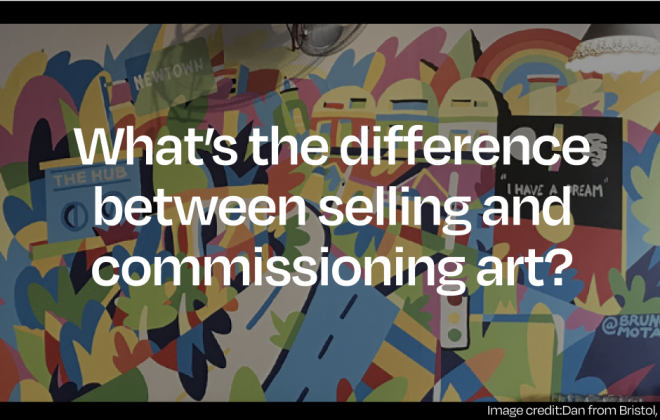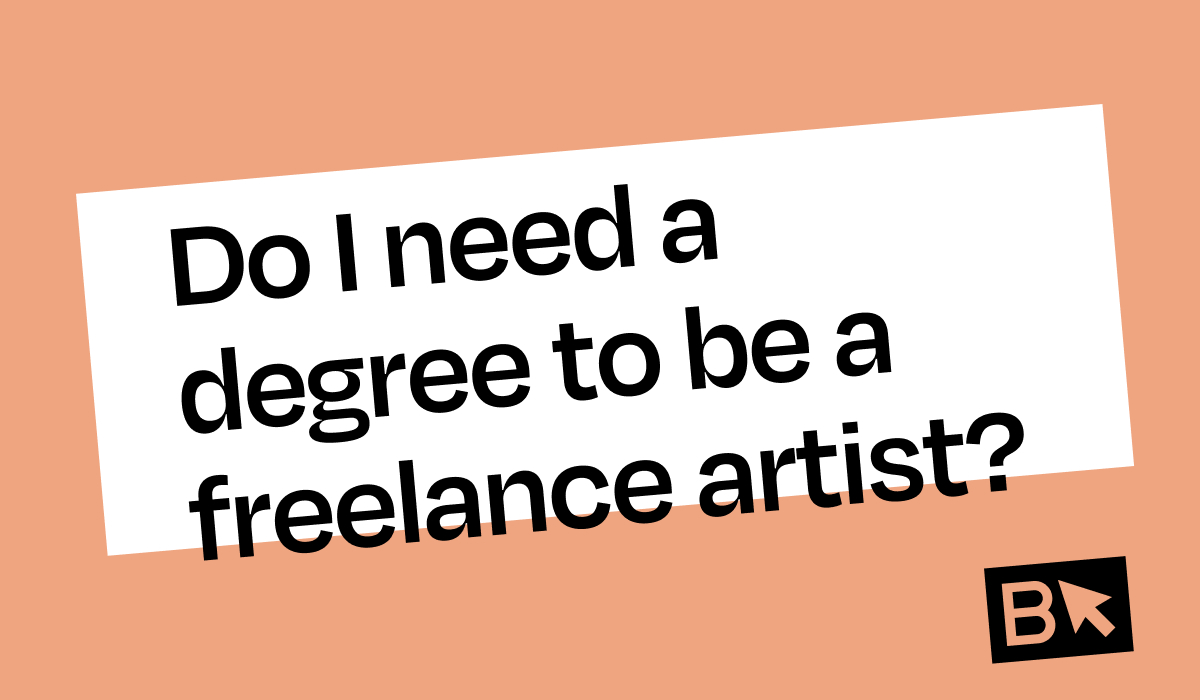
Do I need a degree to be a freelance artist?
Do I need a degree to be a freelance artist?
Do I need a degree to be a freelance artist? Short answer – not really. You don’t need a degree from an art university to be a freelance artist nor to pursue your creative dreams. Many successful freelance artists have developed their skills overtime and through other means such as workshops, online tutorials and apprenticeships. A strong portfolio of work is sometimes considered to be more important than a formal education. Great artists such as Keith Haring, Banksy, Yayoi Kasuma and Vincent Van Gogh never attended university to study art. They became notable through apprenticeships, community notoriety and self-education.
However, having an arts degree or a related field can help you develop your skills and knowledge, as well as provide you with a network of contacts and resources. Some clients may also prefer to work with artists who have formal training or education, specifically large commercial brands.
Some popular art degrees include studying in areas such as painting, illustration, portrait art, sketch art, graphic design, animation, photography and digital art.
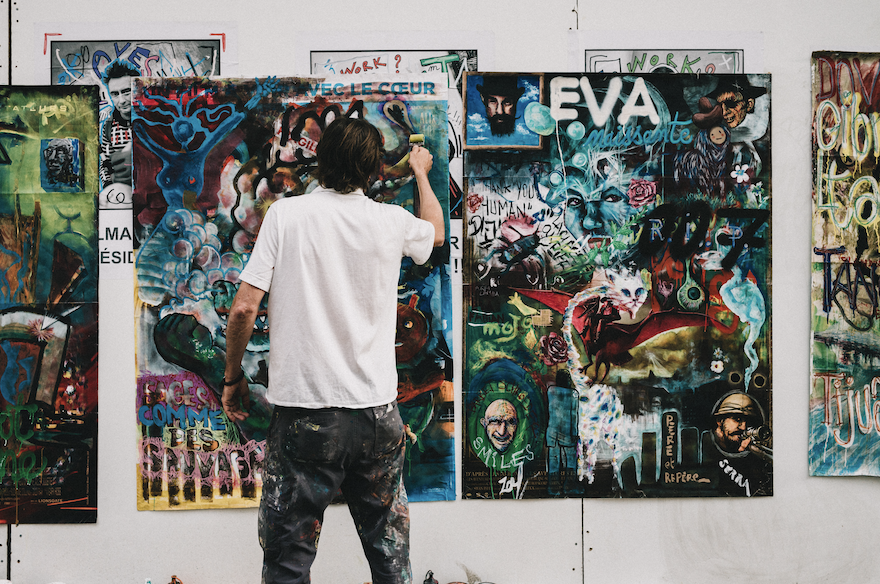
What do I need to become a freelance artist?
University isn’t for you – or isn’t for you right now – so what does it take to become a freelance artist? Running your own business involves balancing the creation of your art with the business side of things, such as marketing, networking, and managing finances. Growing both your business and art skills is a crucial part of finding success as a freelance artist. Some helpful hints to beginning your freelance artist career include:
- Create a business plan, register your business and organize your finances. Develop a clear plan, including your goals, who you’re marketing to, pricing and marketing strategies. The fun part is picking your business name!
- Build a website or strengthen your online presence. In a world where everybody is on all the time, it’s important to get your name out there! Create a professional website and post regularly on social media to promote your business and art.
- Develop your skills and build a portfolio. Whether you have a formal education or not, it’s important to continue to develop your skills and knowledge as an artist. Create both a hard copy and digital version of your best work (use photographs fo larger works, such as murals and paintings). Your portfolio should act as your resume to help book you jobs.
- Establish your brand and network. Create a consistent and professional image for yourself as an artist that flows across your portfolio, website and social media. A consistent look will make networking easier as people will come to recognise you and your work. Attend art shows and exhibitions, join professional organisations and participate in online art communities for artists.
- Be prepared for rejection. Understand that rejection is part of the process, and don’t take it personally. Keep creating, discussing, negotiating and be prepared to justify your prices.
Stepping into the big wide world of art will be daunting, but there are plenty of avenues to explore. There is no entirely right or wrong way to go about becoming an artist. Much like any freelance career it is about trial and error.
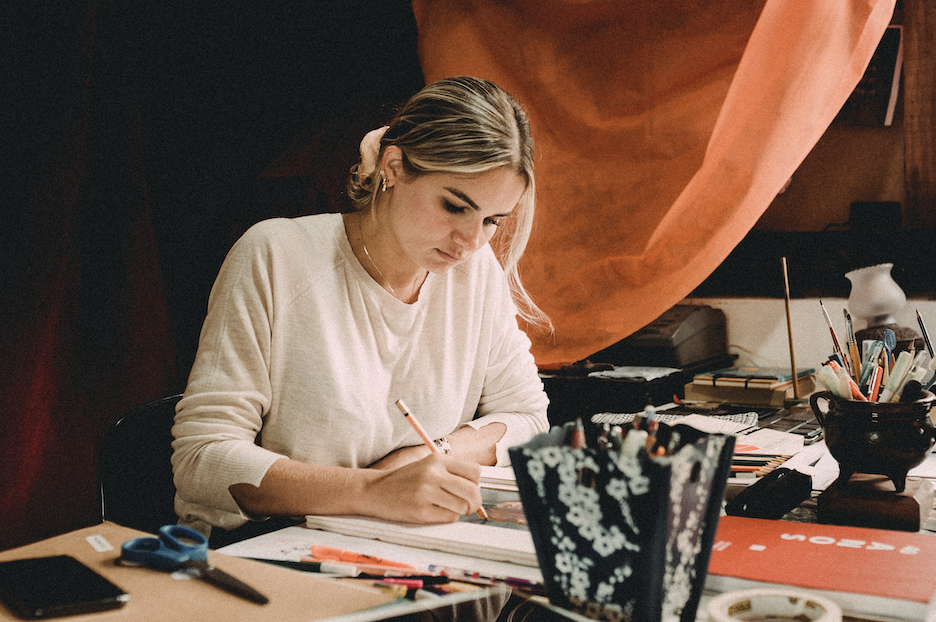
Can you do art commissions under 18?
It is possible for people under the age of 18 to commision and sell their art, but there are some legal and financial considerations to keep in mind.
Legally, there is no specific age at which a person can begin selling their art. However, if you are under 18, a parent or guardian will likely need to sign any legal documents related to the sale, such as contracts. Additionally, if you are selling your work through a website or online marketplace (Etsy, Book An Artist, Upwork) you will need to ensure that you are in compliance with the site’s terms of service. Each marketplace is different.
In Australia, Singapore, Canada and the United Kingdom minors under the age of 18 are not legally able to enter contracts of conduct business in the same way as an adult. However, a parent or legal guardian may act as an intermediary and sign any legal agreements on behalf of the minor. In the United States, minors are able to sign contracts but these contracts may not hold up in court. For more information please refer to the following links: Australia’s Children as Consumers Law, Minors Contracts Act 1987 (United Kingdom), Legal Advice from the United States and Singapore Contract Law.
When it comes to the financial aspect of commissioning art under 18, minors are usually unable to open a bank account or enter into financial agreements without permission from a parent. Local laws may also prevent minors from earning over a certain amount of money.
If becoming a freelance artist is the career path of interest there are plenty of things to take into consideration. Thankfully, being a minor doesn’t need to be a roadblock on your journey to becoming a freelance artist.
It’s always best to seek professional advice as each country, state and county have varying laws surrounding working under 18.
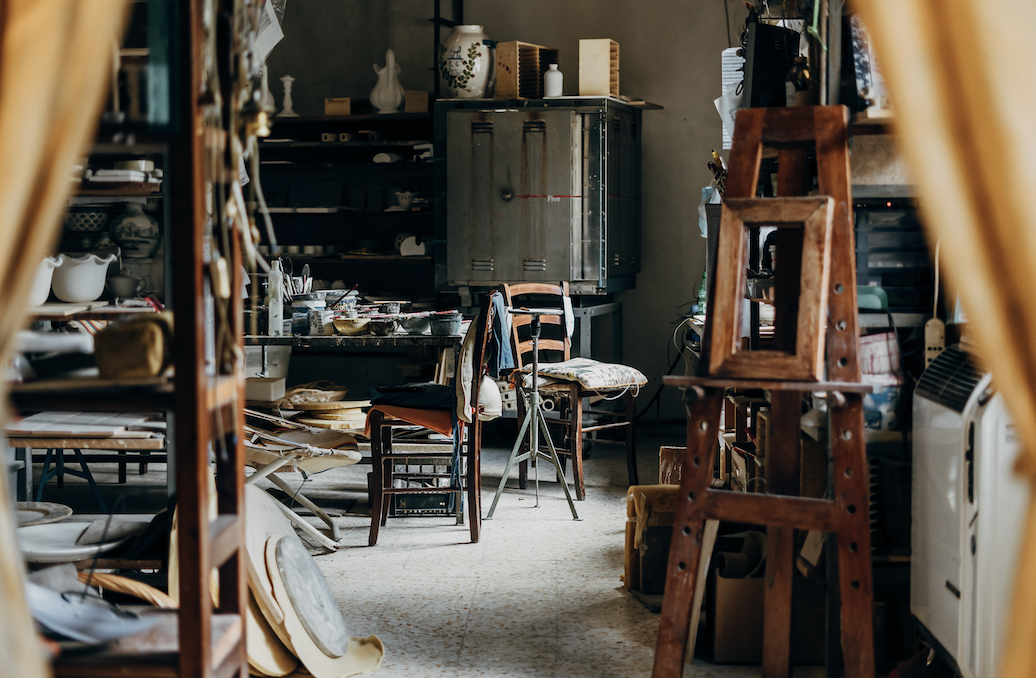
How do you sell art commissions?
After setting up your business and your business plan, selling your art involves finding the best ways to promote yourself and make sales. Many artists choose to build their brand via social media – particularly Instagram. There are plenty of perks to commissioning your work through Instagram and it is considered to be one of the easiest platforms to use. The downside being the high risk nature of dealing with transactions through Instagram. There is no support and a chance of payments becoming complicated.
Marketplaces such as Book An Artist, Etsy and Upwork for freelance artists have built a suite of tools that make it easy to manage the promotion and business management of selling or commissioning. For example, Book An Artist offers the opportunity to get discovered quicker, manage your business with ease and have creative control over the jobs you choose. It can take time to build a following on Instagram, while a marketplace has the resources and expertise to bring in a wider audience of interested customers seeking art. In addition, Book An Artist has developed tools and services catered specifically for booking art commissions. We’ve made the process simple and easy to follow for both artists and customers looking for custom artwork.
Check out some more benefits for artists using a marketplace to commission art!
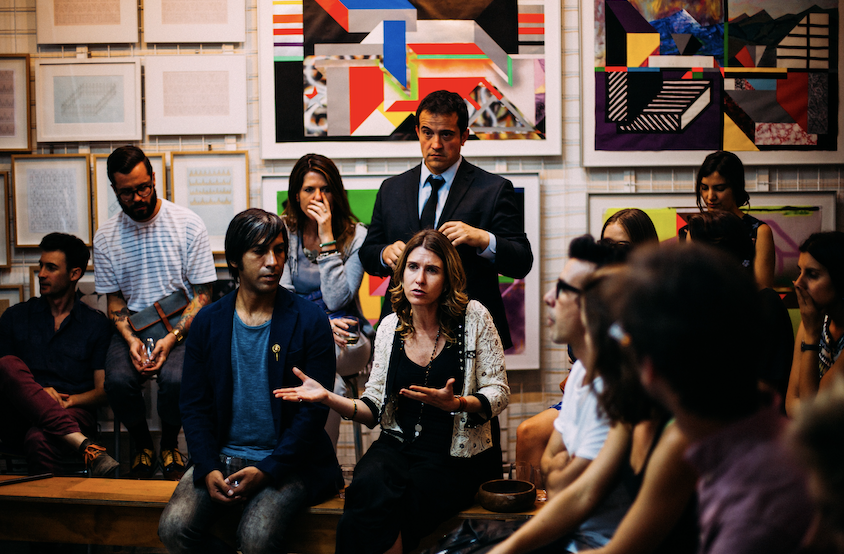
Do I need a degree to be a freelance artist? What would be the purpose of getting a degree?
After all that information you’re probably wondering what the purpose of getting a degree even is?! Whilst further education isn’t for everyone it’s not to be completely dismissed. Many great artists haven’t attended university, but many have. Jeff Koons, Tracey Emin, Chuck Close and Damien Hirst – to name a few.
The purpose of getting a degree is to gain a formal education and specialised knowledge in a specific field or subject area. More than 63% of freelance artists hold a Bachelor’s Degree and 7% have a Master’s Degree [World of Freelancers, 2020]. A degree program typically includes the coursework, as well as lectures and hands-on learning experiences. The benefits of attending university could include:
- Career advancement and improved earning potential. Many jobs require a degree as a minimum qualification. In order to get jobs and furthermore, scale the corporate ladder – usually a degree is expected.
- Specialised knowledge and skills. It’s straight forward, but attending university to learn will obviously have you leaving with more information than you went in with. Being a professional in your niche can help you land job opportunities and resolve issues faster.
- Networking. A degree will provide students the opportunities to interact with peers, professors, and professionals in their field.
Do I need a degree to be a freelance artist? Artists may or may not choose to attend university – it’s important to take time to research and select a program that suits your interests. There are many wonderful universities across the globe that provide varying courses. Curious what the best art schools in the world are?
Check out our Top 10 Best Art Universities in the World list and learn more about getting an art degree.
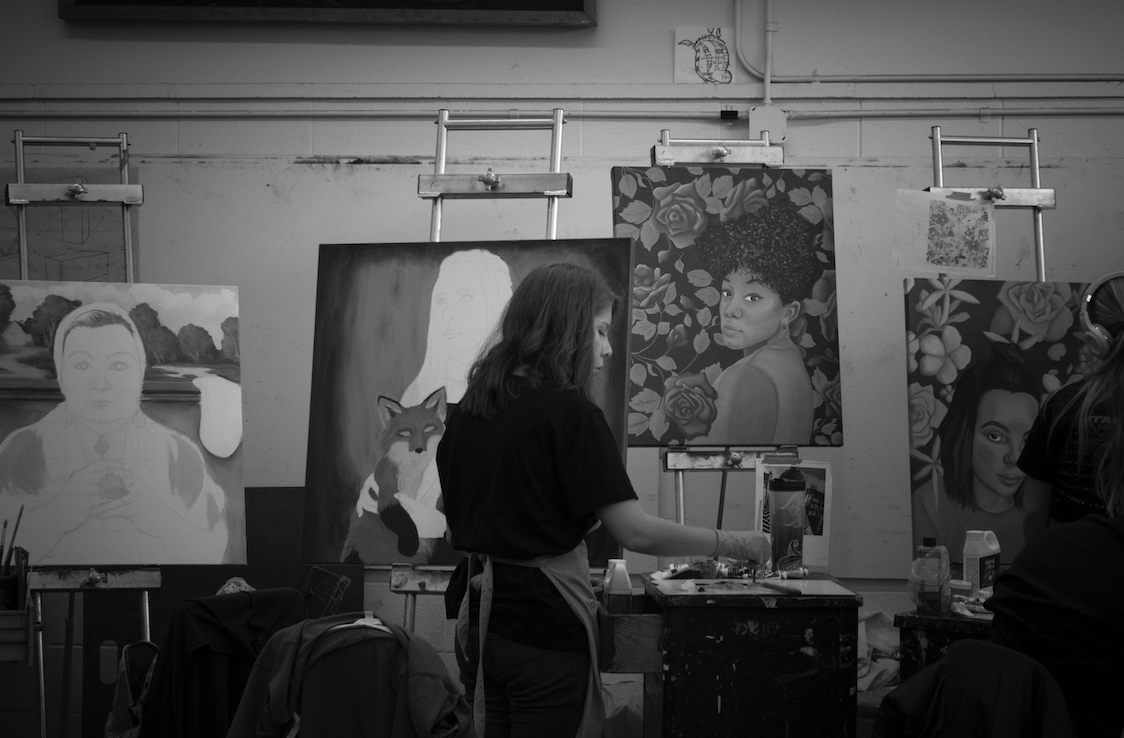
Check out top-rated local artists near you!
Are you an artist ? Sign Up











